Surajeet Das Gupta in New Delhi
The aviation industry in general and Kingfisher Airlines in particular may not be going through the best of financial times but some street-smart investors and entreprenuers have made big money in the sector.
Their success formula was to enter the business at the right time and exit at the opportune moment.
Private equity fund ICICI Venture, for instance, invested around $20 million in Air Deccan two years before the airline went for an initial public offering in 2006.
But, when it exited just after the IPO, it had made a cool $40 million.
ICICI Venture declined to comment on the returns on its investment.
. . .
Aviation turmoil: How some investors checked out in time
Image: SpiceJet aircraft.Those involved in the deal say the private equity fund's strategy was simple: it was looking for a quick exit, much quicker than the three-five year investment spans it usually does.
"With ATF prices going up, they would have had to make more, matching investments after the IPO, as the company was in the investment phase. They, instead, decided to get out earlier," says a former broad member.
Take the case of SpiceJet.
Maverick turnaround artist Wilbur Ross came on the scene when the company was in financial trouble.
. . .
Aviation turmoil: How some investors checked out in time
In 2008, Ross agreed to invest $80 million through foreign currency convertible bonds in the airline.
Ross decided to convert the bonds in 2010, according to a promoter shareholder, at around Rs 27 a share.
Ross's big prize came when the company roped in Sun TV promoter Kalanathi Maran to buy into the airline.
In June 2010, Maran bought 37.7 per cent stake in SpiceJet at Rs 750 crore (Rs 7.5 billion).
Ross sold his shares at around Rs 48 a share -- a premium of 77 per cent on his original investment.
And, it was all within 16 months or so.
. . .
Aviation turmoil: How some investors checked out in time
"He timed his entry perfectly, ensured the airline got out of the woods, turned it around and then got his premium by selling it to Maran," says a former board member and company shareholder.
Ross was, of course, not the only one who made pots of money.
Promoter and one of the airline founders Ajay Singh and his family and associates had 10 per cent stake.
When the airline had started operations in 2005, he had received his shares at the par value of Rs 10 a share.
But, Singh sold half his shares in tranches during 2009-10 at Rs 70-80 -- a sevenfold profit in four-five years. Singh confirmed he had sold his shares at the hefty premium.
. . .
Aviation turmoil: How some investors checked out in time
Image: Captain G R Gopinath.Photographs: www.votecaptaingopi.com
Captain G R Gopinath, promoter of the country's first low-cost carrier, decided to call it a day and sell his stake in Air Deccan to Vijay Mallya in 2007.
Mallya picked up 26 per cent in the airline for around Rs 550 crore (Rs 5.5 billion), which analysts said worked out to Rs 155 a share.
Gopinath and his friends were left with 17 per cent stake after the Air Deccan and Kingfisher merger.
Gopinath says it was sold in tranches.
Even as he refuses to divulge how much the sale fetched, analysts say it could be around Rs 200 crore (Rs 2 billion).
His own share (a little under nine per cent), they say, could have raked in Rs 100 crore (Rs 1 billion).

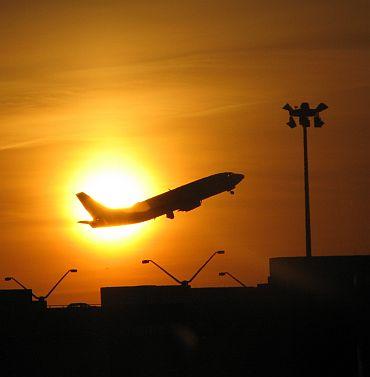
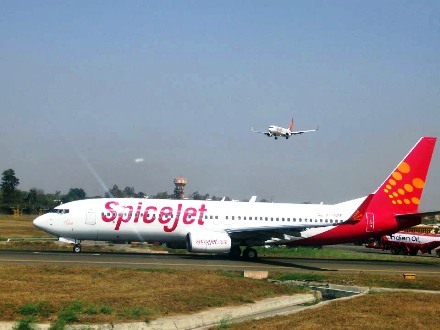
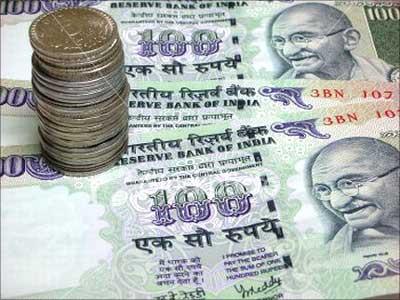
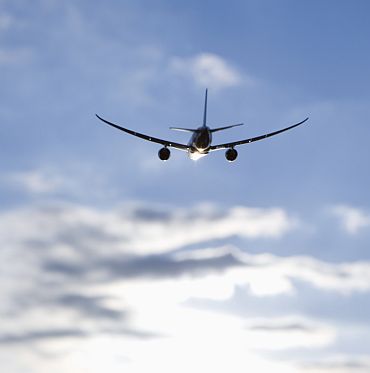
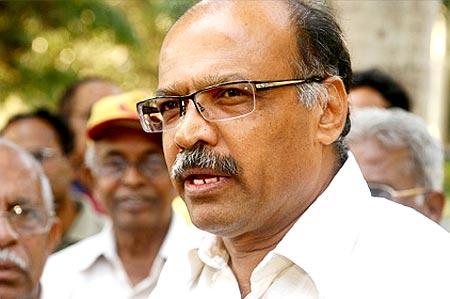

article